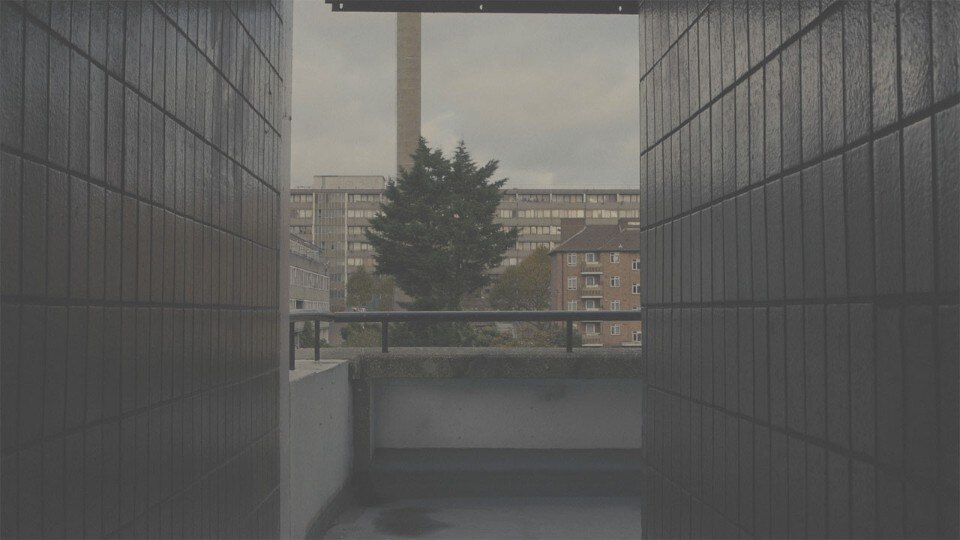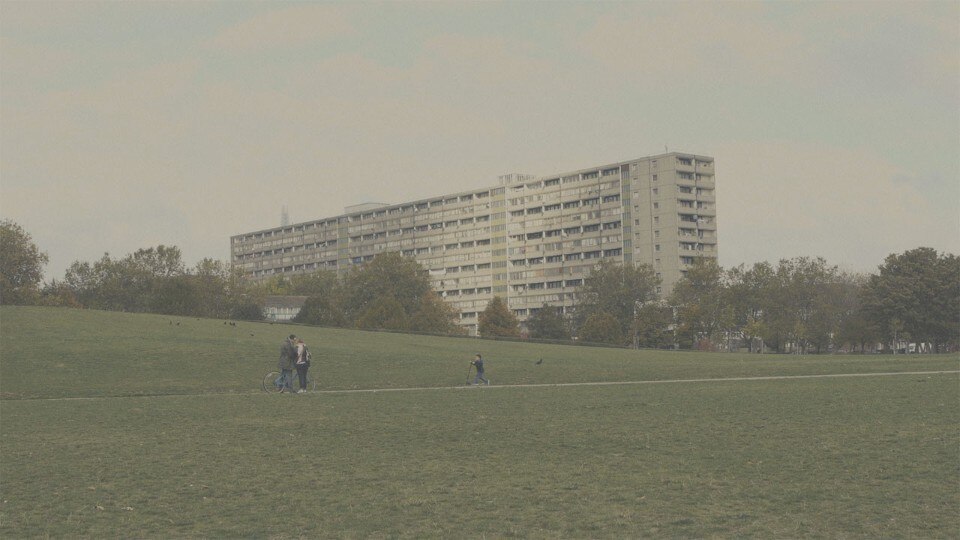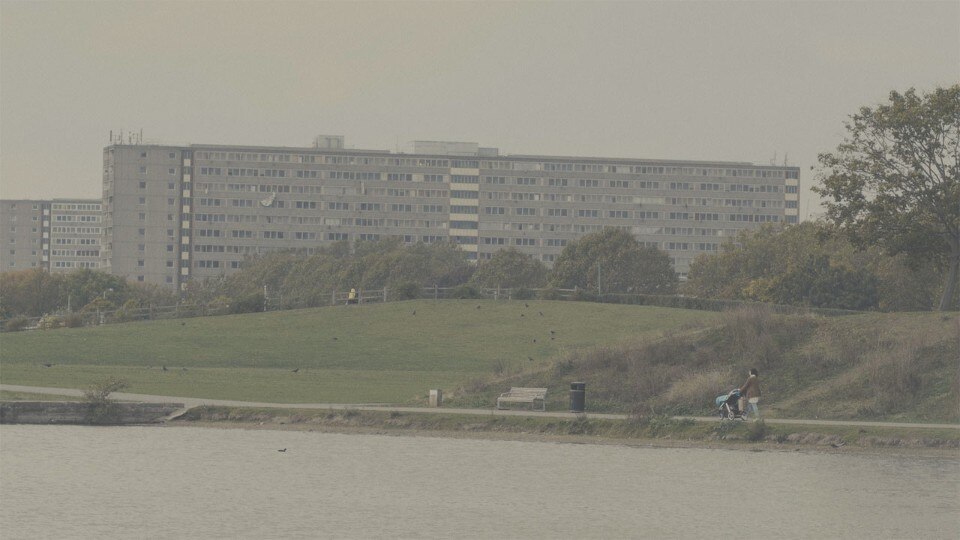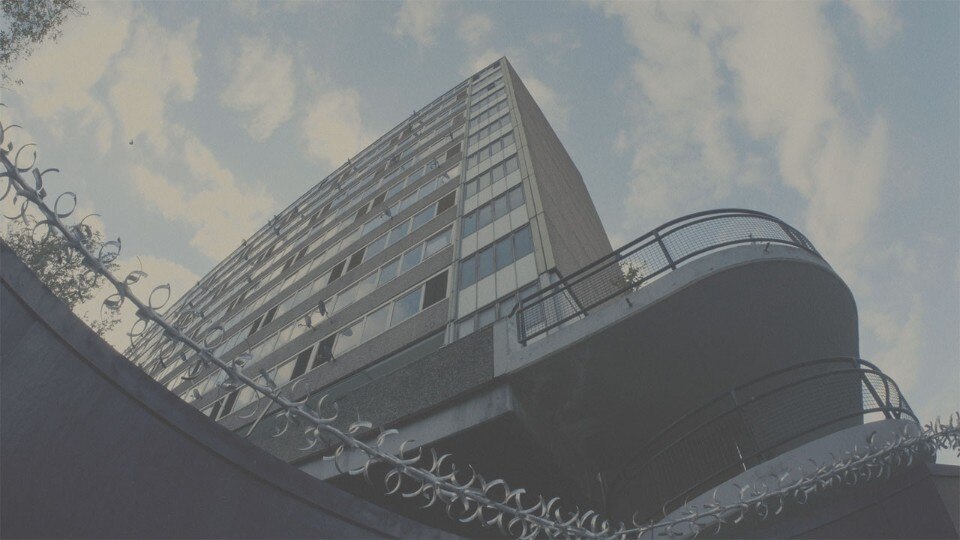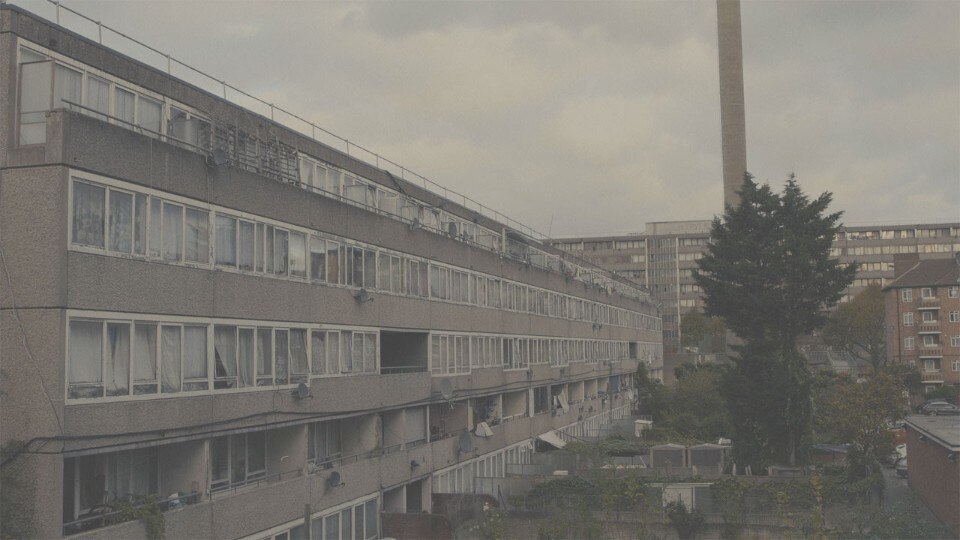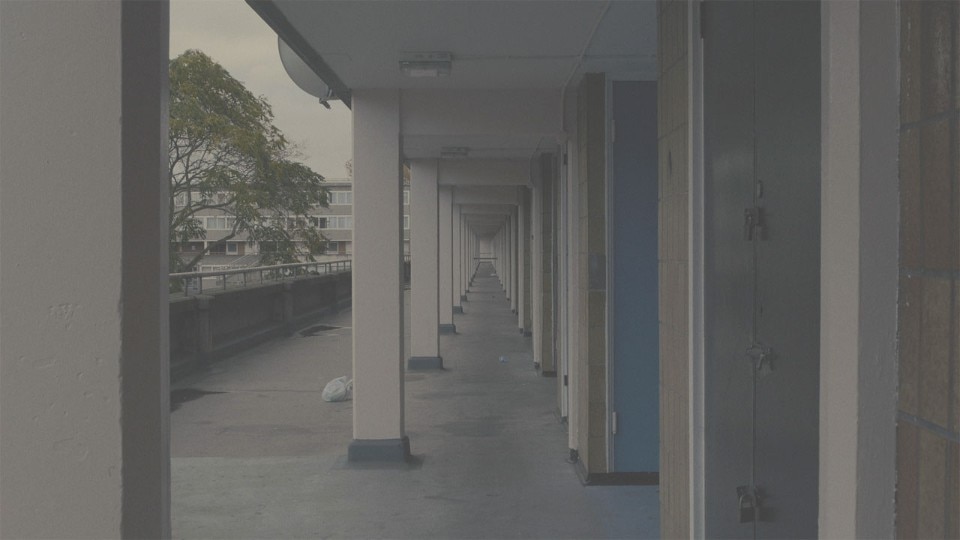With 2,704 dwellings for 7,500 residents, Aylesbury Estate is one of the largest and most ambitious social housing developments in the UK in recent decades. Could you give us a brief overview of the history of this mega-estate built between 1963 and 1977? What is its current state?
Joe Gilbert: The estate was built primarily to house the poorest sector of London’s population. Brutalist estates like this were meant to offer a utopian modern way of living, radically different to the prewar slums that had existed before. Things really started to decline however in the 1980s. There was little care and consideration about the mix of council tenants and the impact this would have on the community living there. The Conservative government at the time was pushing for a shift away from social housing to private ownership. The estates that were left were not adequately maintained. Crime and gangs were allowed to flourish. In 2005, Southwark Council decided it was not worth spending 350 million pounds to renovate the estate and began the process of selling off the land to private developers. Today, only sections of the estate have been demolished and replaced. In September of this year, the government blocked further demolition and the forced eviction of leaseholders, as they were not being offered a fair amount of money for their properties.
Why is this the right time to make a documentary on Aylesbury Estate? Which aspects did you want to emphasise?
Joe Gilbert: It’s the right time to make this documentary because housing is such a huge issue in the UK right now, particularly London. There is a chronic lack of affordable housing for ordinary working people. They are being forced out and there is little anyone is doing to counter this. I want to emphasise how that utopian way of living has failed completely. The legacy of what social housing stands for is destroyed. Today, only money dictates.
Your film opens with Tony Blair’s first speech as prime minister. He calls the Aylesbury Estate an example of the government's wish to offer support for the poorest members of society. What happened after that?
Joe Gilbert: Blair’s words were essentially futile. Money was given to the estate in a bid to strike a deal worth 400 million pounds to transfer ownership over to a housing association. A ballot was held with 73 per cent of tenants rejecting the offer.
You have used a highly “photographic” technique, where everything moves backward and forward around the building, which remains motionless in majestic, timeless “beauty". The narrators’ voices remain off-screen, and the building and its tenants are the only protagonists. What are you trying to express?
Joe Gilbert: My films are very simple in form. I’m merely an observer and visitor to these places. For me, composition is the most important thing. I take inspiration from photography. My aim is to shine a light on these forgotten places in a dignified and respectful way. I’m trying to give a voice to these communities to highlight how divided certain areas of our society are becoming. You only hear the interviewees off-screen because I want the viewers’ attention solely on the buildings themselves. The audience is given time to study the images and intricacies of the environment and design.
Joe Gilbert is a multi award-winning documentary filmmaker and a lover of brutalist architecture. Among his most recent works are: Urban Poetry, 2015 (best documentary at the Thurrock Film festival and at the Screen Stockport), Streets in the Sky on the Robin Hood Gardens estate (Creativepool Annual 2016 winner) and Hollamby’s Hill on the Central Hill housing estate designed by Edward Hollamby.


